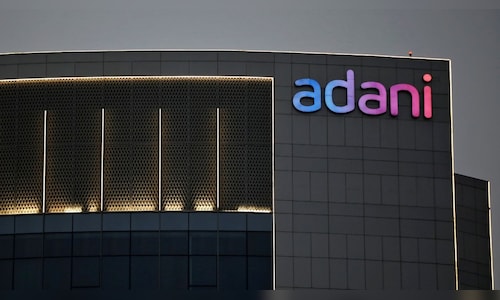Adani Group faces potential US market restrictions amid indictment: Expert

In an interview to CNBC-TV18, Silva highlighted that financial institutions, particularly in the US, are likely to be reluctant to lend or maintain banking relationships due to the heightened risks associated with the criminal and securities fraud investigations.
A US court has indicted Gautam Adani, his nephew Sagar Adani, and several other officials for allegedly bribing Indian government officials to secure solar energy contracts.
The indictment claims that Adani paid over ₹2,000 crore in bribes, including ₹1,750 crore to a senior official in the Andhra Pradesh government. The Adani group is also accused of hiding information regarding an FBI investigation to Indian financial institutions and investors.
Silva noted that Adani Group has already experienced substantial financial repercussions, including a decline in stock value and the cancellation of major contracts, such as a key deal in Kenya post the indictment.
However, drawing parallels to past high-profile cases like Siemens and Oracle, Silva suggests that the Adani Group could eventually face large financial settlements as part of a potential resolution to the charges.
Below is the verbatim transcript of the interview.
Q: Give us a sense of the seriousness of these charges. And when do you think ordinarily, this investigation would have begun, and would all the defendants in this case have already been notified about this investigation and given a notice to join the probe.
Silva: The investigation would have started years ago, most likely two or three years ago. Some of these international investigations of complex international frauds, which are what the allegations show, take a very long time. In this case, based on the indictment and the other public information, it’s clear that the investigators and prosecutors have obtained co-operators. This is individuals who may have engaged in some type of criminal conduct or assisted in the criminal conduct, and have assisted by providing information, communications, financial transactions and other insights into the alleged bribery scheme.
In terms of how serious this is, it really does not get any more serious than this. There is a widespread multi 100-million-dollar bribery scheme, fraud scheme, securities fraud scheme, and obstruction of the actual investigation in the United States.
Regarding your question about whether or not all of the individuals indicted would have been contacted in advance of the indictment. Typically, yes, they would have, but at this point, it’s unclear whether or not they would have been, especially in light of the allegation that there was a conspiracy to obstruct the investigation. Typically, when that happens, they won’t reach out to the people who themselves are attempting to undermine that investigation.
Q: I would also like to ask you about the manner in which some of these cases have been settled in the past, Siemens, Oracle for example, these are companies which had been charged for bribing officials across the world, including in India, those cases were eventually settled for millions of dollars. How do you think this could proceed? And do you think eventually this would also reach a settlement?
Silva: What’s interesting is no entity, no company, whether in the United States, India, or anywhere where else in the world, is named in the indictment. What that suggests to me is that the resolution, as you propose, in the same vein as Siemens, there might be an additional conversation happening separately from the individual indictments. What that means is, in the United States, an entity has its own liability, has its own potential criminal exposure, and so it will have its own attorneys who will most likely be negotiating with the US authorities to resolve that. One extra point is it’s not only the company’s criminal liability and the individual’s criminal liability. There’s also an SEC complaint that was filed, and so there’s also securities issues, so there’s most likely very complex, expansive negotiations happening, both on the criminal level and at the securities level.
Q: How does this impact the future possibility of the companies of the defendants mentioned in the indictment and in the SEC investigation their ability to raise capital globally, and will the banks which have given them capital in the US, do you think they will also be brought into this investigation, and would documents and evidence be sought from them as well?
Silva: Yes, there is no doubt that the financial institutions involved in the underlying financing or promoting the securities in this indictment have already been contacted and are already providing information – these are the financial transactions, these are the communications, these are any interactions with the defendants or the unindicted co-conspirators in this case.
In terms of the Adani Group, they have already suffered financial impacts in terms of the reduction of their stock price. I believe one contract in Kenya was already cancelled. So there’s hundreds of millions of dollars of revenue that will be lost. In addition, because of the nature of the securities allegations, there is also the potential that they will be restricted or excluded from raising money on US markets. And then the final issue is similar to the Kenyan government’s desire to no longer engage in any contracts with the Adani Group. A lot of financial institutions, particularly in the United States, will be concerned with financing or any type of lending or banking relationship with any company affiliated with the Adani Group, for the simple reason that they are potentially in the middle of a criminal and securities fraud investigation and prosecution, meaning that increases the risks massively for the financial institutions who never want to take very many risks, more than they have to and tend to be much more conservative in issues like this.








